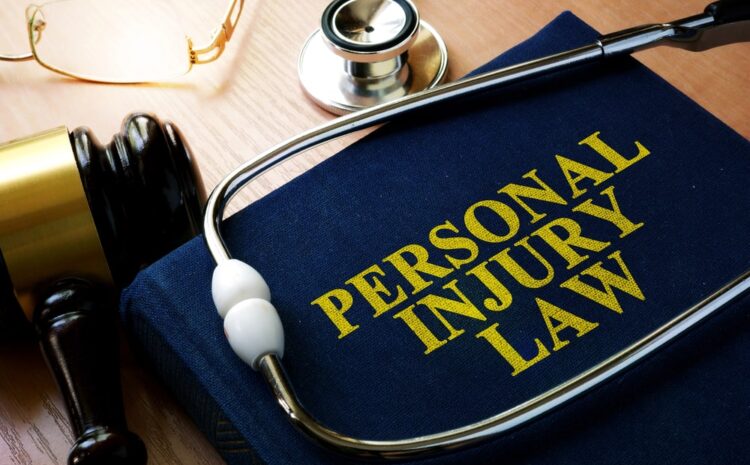
Accidents happen suddenly, but their effects can last a lifetime. Whether you’re dealing with a car accident, a slip-and-fall, or an injury at work, personal injury law is designed to protect you when someone else’s negligence causes you harm. In Texas, understanding your rights and knowing how to navigate the legal process can make a significant difference in your ability to recover physically, emotionally, and financially. Our Dallas, TX personal injury lawyer can help you. Here’s a comprehensive guide to personal injury claims in Texas and the steps you can take to protect your rights.
What Is A Personal Injury Claim?
A personal injury claim arises when an individual suffers harm because of another party’s carelessness, negligence, or intentional wrongdoing. Common examples of personal injury cases include:
1. Car Accidents: Texas operates under a “fault” system, meaning the person responsible for the accident is liable for damages. This includes compensation for injuries, vehicle damage, and other losses.
2. Slip-and-Fall Accidents: Property owners are legally required to keep their premises safe. If you slip, trip, or fall due to hazardous conditions like wet floors, uneven surfaces, or poor lighting, the property owner may be held liable.
3. Workplace Injuries: While workers’ compensation covers many job-related injuries, there may be instances where third-party claims are necessary, especially if defective equipment or outside contractors contributed to the accident.
4. Medical Malpractice: If a healthcare professional’s mistake leads to injury, you may have grounds for a medical malpractice claim.
5. Dog Bites: In Texas, pet owners may be held liable if their dog bites someone, especially if the dog has shown prior aggressive behavior.
Key Elements Of A Personal Injury Case
For a successful personal injury claim, you must prove the following elements:
1. Duty of Care: The responsible party had a duty to act reasonably to avoid causing harm. For example, drivers must obey traffic laws, and property owners must maintain safe premises.
2. Breach of Duty: The responsible party failed to uphold their duty. For instance, a driver who speeds through a red light or a store owner who ignores a wet floor hazard breaches their duty of care.
3. Causation: You must show that the breach of duty directly caused your injury. If you slipped on an unmarked wet floor, the store’s failure to warn or clean up the hazard caused your fall.
4. Damages: You must demonstrate that you suffered losses, such as medical bills, lost wages, property damage, or pain and suffering.
Why Acting Quickly Is Important
In Texas, the statute of limitations for most personal injury claims is two years from the date of the injury. If you fail to file a lawsuit within this timeframe, you could lose your right to pursue compensation. Acting quickly ensures that evidence is preserved, witnesses’ memories remain fresh, and you meet all legal deadlines.
Types Of Compensation You Can Recover
In a personal injury case, you may be entitled to various types of compensation, including:
• Medical Expenses: Coverage for past, current, and future medical bills related to your injury, such as hospital stays, surgeries, medications, and therapy.
• Lost Wages: Compensation for income lost due to time away from work and future lost earning potential if you’re unable to return to your previous job.
• Pain and Suffering: Compensation for physical pain, emotional distress, and reduced quality of life.
• Property Damage: Costs to repair or replace damaged property, such as your vehicle in a car accident.
• Punitive Damages: In cases of extreme negligence or intentional misconduct, the court may award punitive damages to punish the wrongdoer.
Why You Need A Personal Injury Attorney
Personal injury cases can be complicated. Insurance companies often aim to settle quickly for the lowest possible amount, and legal procedures can be overwhelming. Hiring an experienced personal injury attorney offers several advantages:
Case Evaluation: An attorney can assess the strength of your claim and estimate its value.
• Negotiation Skills: Lawyers know how to deal with insurance adjusters and fight for a fair settlement.
• Court Representation: If negotiations fail, an attorney can represent you in court and present a compelling case.
• Peace of Mind: Having a legal professional handle your case allows you to focus on recovery.
If you’ve been injured due to someone else’s negligence, understanding your rights is essential. Seeking compensation can help you recover medical costs, lost income, and other damages. Don’t delay — the sooner you take action, the better your chances of a successful outcome. Consulting with a personal injury attorney can guide you through the process and help you achieve the justice you deserve. For personalized legal advice, consider contacting Brandy Austin Law Firm to discuss your case and explore your options.



